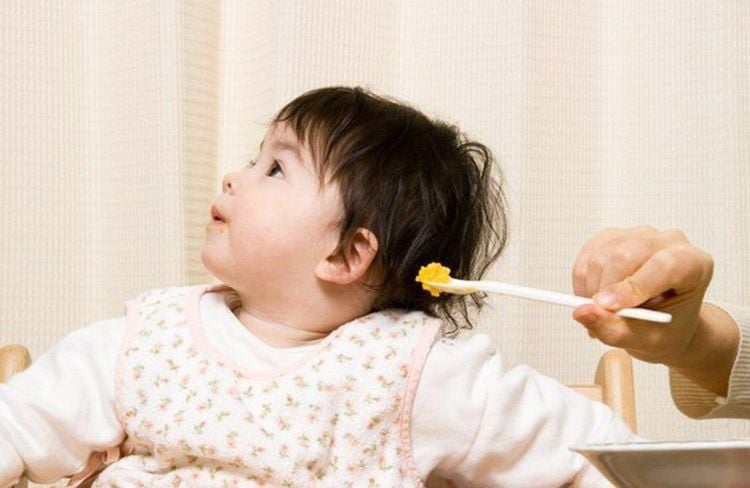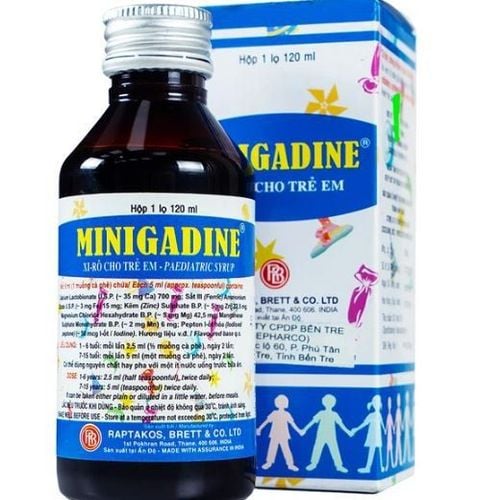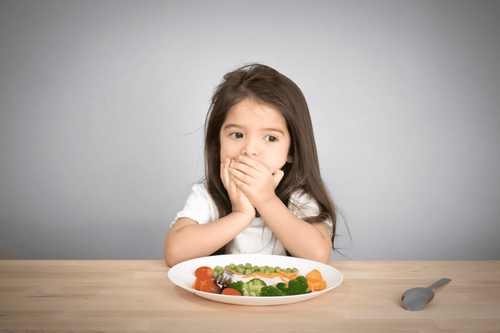This is an automatically translated article.
Anorexia is a fairly common condition in young children, when faced with this problem, many parents are confused and worried, because they are afraid that this situation will affect their children's health for a long time. So what to do about the problem of 17-month-old anorexic children?
1. Signs of 17-month-old anorexia
Anorexia is a condition in which a child eats 60% less than the actual need, lasting from 1 month or more. Children with anorexia for a long time can cause many dangerous consequences, not only affecting physical development but also limiting intellectual development. Even anorexia leads to children suffering from growth disorders and cognitive disorders.
The signs of a 17-month-old anorexia are:
The child eats very little food, only eats certain foods The child does not want to try new foods Each meal of the baby usually lasts more than 30 minutes When eating, Children often do not focus, or fuss, suck or spit food, ..
2. Causes of 17-month-old anorexia
By 17 months, most babies can walk, run and jump and are learning to speak quite well. At this time, anorexia in children can appear due to reasons such as:
Children do not eat foods they do not like: Many children will refuse to eat if the meal does not include the foods that they love. For example, many 17-month-old babies refuse to eat porridge or certain foods (beef, carrots, etc.). Over time, this will affect the children's eating, making them lazy to eat, anorexic and skip meals.

"Bé 17 tháng tuổi biếng ăn phải làm sao?" là vấn đề khiến nhiều cha mẹ đau đầu
Due to bad habits that parents create for children: Many families have unintentionally created bad habits in their children's meals, causing children to become lazy and anorexic when it's time to eat. Specifically, those bad habits are: Letting children go out to eat everywhere or letting them watch TV, use smartphones at every meal, etc. In addition, some mothers who force their children to eat too much will also scare them. fear, hide when it's time to eat. Put medicine in the child's porridge: Many parents have the habit of putting medicine in their baby's food when the baby is sick. Next time, the child will be wary and stay away from the food. Psychological reasons: Many 17-month-old children suffer from anorexia because their parents force them to eat, how to cook, their caregivers,...; Due to health problems: When teething, the baby's gums will be swollen, causing pain. At this time, children often do not want to eat or drink. Therefore, when noticing that a child is anorexic, parents can check their child's teeth to identify problems as quickly as possible. Or children have digestive disorders, because at this time the digestive system is not really stable. Therefore, digestive disorders can affect children's eating, making them lazy and anorexic. Or in some cases, children have sore throat, sore throat when swallowing food, so children with sore throat often cry when it comes to meals and eat very little.
3. Answer for 17-month-old anorexic what to do?
Depending on the cause of 17-month-old anorexia, parents can apply some appropriate interventions. If the child has a pathological anorexia, parents should take the child to a doctor for advice and timely treatment support.
For cases of anorexia due to the remaining reasons, parents can apply the following ways:
Teach children a scientific eating habit by making a daily eating schedule for the child. . Then, parents choose the children's daily menu according to the correct time frames. During meals, children should not go out to eat, play with toys or watch TV, need to let them focus completely on the meal. Parents can prepare children to eat colorful foods, suitable for children's psychology. Children often love colorful objects and funny cartoon characters. Therefore, parents can prepare delicious and eye-catching dishes to attract children.

Một thực đơn đa dạng và ngộ nghĩnh sẽ góp phần khắc phục tình trạng trẻ 17 tháng biếng ăn
Parents should create a comfortable atmosphere for their children when it comes to meals. Mothers should absolutely not pressure children, do not force children to eat foods that they do not like. This will help children eat more comfortably and deliciously; Parents should limit their children from eating junk food such as chips, chips,... because they affect the digestive system and cause anorexia in children. Parents should arrange children's main meals - snacks 2 - 3 hours apart, between meals only give water to children, limit snacks so that children have cravings when it's time to eat. Parents should only give their children a snack once a day, after they have finished eating the main meal. At the same time, parents should encourage children to increase physical activities to eat more deliciously. Babies need to be supplemented with necessary micronutrients, help improve taste, good for growth in height, weight and improve resistance. These substances are: vitamin C, vitamins B1 and B6, chromium, zinc, selenium, ... Because improving the child's anorexia needs to be persistent for a long time, parents can supplement the above micronutrients. through food or functional foods. If using functional foods, children should use natural origin so that the child's body can easily absorb. If the above measures have been applied, but the child still has anorexia, anorexia, parents should take the child to see a doctor for advice and appropriate interventions. The improvement of children's anorexia symptoms can take place for a long time, so it is recommended that parents be calm and persistent when supplementing with nutrients for their children, even through eating or functional foods. In particular, the use of functional foods should choose those of natural origin that are easily absorbed, do not allow children to use many types at the same time or continuously change the types of functional foods. In the case of children with prolonged anorexia, malabsorption, and growth retardation, parents should supplement children with supportive products containing lysine, essential micro-minerals and vitamins such as zinc, chromium, selenium, and B vitamins. help meet the nutritional needs of children. At the same time, these essential vitamins also support digestion, enhance nutrient absorption, help improve anorexia, and help children eat well. Parents can simultaneously apply dietary supplements and functional foods derived from nature for easy absorption. The most important thing is that improving your baby's symptoms often takes a long time. Combining many types of functional foods at the same time or changing many types in a short time can make the baby's digestive system unable to adapt and completely not good. Therefore, parents must be really patient with their children and regularly visit the website vimec.com to update useful baby care information.













